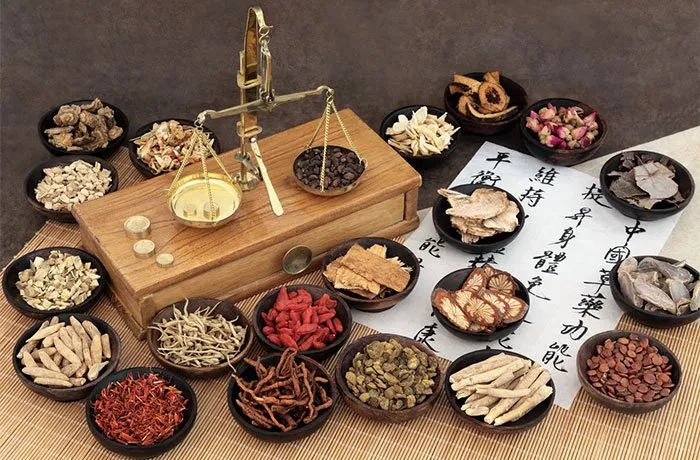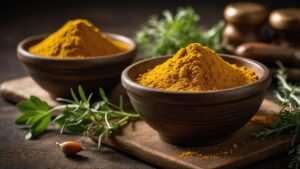
Getting a good night’s sleep becomes increasingly important as we age, yet many elderly adults struggle to get the restorative sleep they need. Traditional Chinese Medicine (TCM) has been used for centuries to improve sleep quality naturally, focusing on balancing the body’s energies and addressing underlying causes of insomnia, especially common ones in older adults. In this article, I’ll guide you through TCM practices, herbal remedies, and lifestyle adjustments that have been shown to enhance sleep quality. As someone deeply passionate about natural health approaches, I hope to offer you a thoughtful perspective on how these time-honored methods can make a real difference.
1. Understanding Traditional Chinese Medicine and Sleep Quality
Traditional Chinese Medicine views sleep as an essential aspect of health and well-being, closely tied to the balance of “Qi” (vital energy), blood, and the harmony between Yin and Yang energies in the body. According to TCM principles, insomnia or poor sleep is often due to imbalances or blockages in these energies. Factors such as blood deficiency, liver Qi stagnation, or kidney deficiencies can disrupt sleep patterns.
Let’s explore how TCM tailors treatments for specific root causes, an approach that distinguishes it from conventional sleep aids, which often address only symptoms.
2. Why TCM is Especially Beneficial for Elderly Adults
As we age, both our body and mind undergo many changes, leading to a natural decline in Qi and blood circulation. This decline can result in physical discomfort, emotional instability, and conditions such as chronic pain, anxiety, and even depression—factors that commonly impact sleep quality in elderly individuals. TCM’s gentle, holistic approach is well-suited for older adults because it emphasizes nurturing and restoring balance in a non-invasive way. Many seniors prefer TCM due to its focus on natural remedies, minimizing side effects often associated with pharmaceuticals.
3. Key TCM Therapies for Sleep: Herbs, Acupuncture, and Dietary Adjustments
a) Herbal Remedies
TCM herbal formulas have been extensively used to promote better sleep. Here are some well-researched herbs that can significantly help with sleep quality, especially in the elderly:
- Suan Zao Ren (Ziziphus Jujube Seed): Known for calming the mind and nourishing the heart, Suan Zao Ren is often prescribed for those with sleep issues tied to anxiety or excessive dreaming.
- Bai Zi Ren (Arborvitae Seed): This herb helps treat insomnia associated with irritability and heart Qi deficiency, commonly seen in older adults.
- He Huan Pi (Mimosa Tree Bark): Often recommended for individuals experiencing emotional disturbances, this herb has a calming effect on the nervous system.
- Fu Shen (Poria): This is particularly beneficial for individuals with palpitations or restless thoughts at night, as it clears “dampness” and harmonizes sleep-inducing elements.
Example Herbal Combination
Below is a sample herbal formula that TCM practitioners may use to address insomnia:
| Herb | Function |
|---|---|
| Suan Zao Ren | Calms the mind, nourishes the liver |
| Bai Zi Ren | Nourishes blood, supports restful sleep |
| Fu Shen | Clears dampness, calms the mind |
| Yuan Zhi | Eases restlessness and nervous tension |
Note: Always consult a certified TCM practitioner before using these herbs, as the formulas must be tailored to individual needs.
b) Acupuncture
Acupuncture is one of the most effective methods in TCM for improving sleep quality. By inserting fine needles at specific points, acupuncture works to rebalance the body’s energy and promote relaxation.
- Common Points for Insomnia: Shen Men (Heart 7), An Mian (extra point for sleep), and Bai Hui (Du 20) are points often used to calm the mind and ease sleep issues.
- How It Works: Acupuncture is thought to increase the production of melatonin, the sleep-regulating hormone, and stimulate the parasympathetic nervous system, which promotes relaxation and restful sleep.
Most people report feeling a sense of deep calm and relaxation immediately after acupuncture sessions, which translates into better sleep at night. Studies have shown that acupuncture can also be effective in reducing symptoms of insomnia and improving overall sleep quality, especially when combined with herbal medicine.
c) Dietary Adjustments for Better Sleep
In TCM, diet plays an important role in maintaining balance and promoting restful sleep. Here are some dietary recommendations that I often suggest for elderly adults seeking better sleep:
- Incorporate Warming Foods: Foods like brown rice, sweet potatoes, and ginger can strengthen the body’s Qi and encourage sleep.
- Limit Cold and Raw Foods: Cold foods can disrupt digestive health and weaken Qi. Elderly adults are advised to consume more warm and easily digestible meals, especially during the evening.
- Avoid Caffeine and Heavy Meals: TCM recommends avoiding stimulating foods or drinks in the late afternoon or evening, as they can disturb the natural sleep-wake cycle.
4. Lifestyle Adjustments in TCM to Encourage Restful Sleep
Beyond herbs, acupuncture, and diet, there are lifestyle habits in TCM that can support better sleep:
- Mindful Meditation and Qi Gong: Gentle movement practices like Qi Gong and Tai Chi encourage circulation, relieve stress, and calm the mind. For elderly adults, these practices provide low-impact exercise with numerous mental health benefits, including better sleep.
- Warm Foot Soaks: In TCM, a warm foot soak before bed is believed to draw Qi downwards, helping to ease an overactive mind. Adding Epsom salt or ginger to the soak can enhance relaxation.
- Creating a Bedtime Routine: TCM encourages winding down with a consistent bedtime routine. This could include reading, gentle stretching, or drinking a calming herbal tea like chamomile or lavender to help signal the body that it’s time for sleep.
5. Comparing TCM with Conventional Approaches to Sleep
Traditional Chinese Medicine offers several advantages over conventional treatments like sleep medications, which can have side effects such as grogginess, dependency, and diminished efficacy over time. TCM takes a gradual approach that, while slower, often provides more sustainable and holistic results. Rather than suppressing symptoms, TCM focuses on addressing the root cause of sleep disturbances, making it an ideal choice for those looking for long-term improvement in sleep quality.
6. How to Get Started with TCM for Better Sleep
If you’re interested in exploring TCM to improve sleep, here’s a step-by-step guide:
- Consult a Licensed TCM Practitioner: Since TCM is a personalized approach, it’s essential to work with a qualified practitioner who can assess your unique needs and prescribe tailored treatments.
- Try a Few TCM Modalities Together: Combining acupuncture, herbal treatments, and diet adjustments often yields the best results.
- Be Patient and Consistent: Unlike medications, TCM remedies work over time. With regular treatment, many people find improvements in both sleep quality and overall energy.
Final Thoughts: Embracing a Natural Path to Better Sleep
In Traditional Chinese Medicine, sleep is viewed as a deeply restorative and balancing process. TCM therapies—herbs, acupuncture, diet, and lifestyle changes—are rooted in a holistic philosophy that can greatly benefit elderly adults struggling with sleep issues. I’ve seen firsthand how adopting these practices can make a difference, especially when conventional methods fail to deliver long-term relief. Whether you’re new to TCM or looking to deepen your understanding, I hope this overview provides helpful insights into how these time-tested practices can enhance sleep quality and improve quality of life naturally.
By incorporating TCM practices into your life, you might find not only better sleep but also a renewed sense of calm and balance that enriches every day. Thank you for exploring this path with me, and may it lead you to the rest and peace you deserve.








